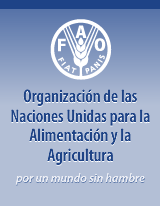New FAO Project to strengthen forest sector contributions to healthy and sustainable agrifood systems
 @FAOA new FAO Technical Cooperation project is kicking off in Cameroon, Papua New Guinea, Paraguay, the Philippines and Viet Nam. The project aims to strengthen institutional capacities to support and upscale interventions to enhance the contributions of forests, trees and non-wood forest products (NWFPs) to healthy and sustainable agrifood systems by optimizing their untapped potential. This will simultaneously address country priorities and commitments related to nutrition, poverty, biodiversity and climate through a systems-approach.
@FAOA new FAO Technical Cooperation project is kicking off in Cameroon, Papua New Guinea, Paraguay, the Philippines and Viet Nam. The project aims to strengthen institutional capacities to support and upscale interventions to enhance the contributions of forests, trees and non-wood forest products (NWFPs) to healthy and sustainable agrifood systems by optimizing their untapped potential. This will simultaneously address country priorities and commitments related to nutrition, poverty, biodiversity and climate through a systems-approach.
The project will focus on “neglected and underutilized” forest resources such as wild plants, fungi and insects, also known as NWFPs, by:
(1) building capacity on data and knowledge on NWFPs and associated food systems to facilitate the generation of scientifically sound evidence for policy and finance decision makers;
(2) promoting an enabling environment by enhancing multi-sectoral dialogue and associated interventions and policies, ensuring women, indigenous peoples and local communities’ representation;
(3) catalyzing resources to support and upscale interventions identified during the activities of the proposed project.
Background and rationale
The urgency of transforming agrifood systems is irrefutable and critical to multiple global agendas (e.g. Sustainable Development Goals [SDGs], Convention on Biological Diversity [CBD] - Global Biodiversity Framework, United Nations Framework Convention on Climate Change [UNFCCC] - Paris Agreement) and country priorities. However, governments are struggling to achieve impacts that address desired dietary, health, environmental and social outcomes simultaneously, as a comprehensive approach to agrifood systems transformation is often lacking. Forests, crop and livestock in particular are still largely managed separately. While forests are receiving increased attention for their role in mitigating and adapting to climate change and conserving biodiversity, their contribution to sustainable agrifood systems tends to be overlooked in policy and practice. This despite growing evidence illustrating the benefits of forests, trees and forest- and tree-derived plants and animals to healthy and sustainable agrifood systems.
Forests represent some of the richest biological areas on earth. Forests and trees typically contribute to agrifood systems by retaining ecological health and species diversity, making use of a wide range of nutritious species and habitats, and providing ecosystem services like water quality, flood control, wildlife habitat, healthy soils, carbon storage, and pollination, essential for food production and healthy lives. An estimated 5.76 billion people across socioeconomic groups and geographic regions use NWFPs, with men and women playing different roles in the collection, use and management of forest resources. However, fewer than 200 out of estimated 400 000 identified plant species are currently making substantial contributions to global food production.
Acknowledging the multiple agriculture-forestry linkages, FAO member countries recently advised its governing bodies to better coordinate issues related to forestry and agriculture, and requested FAO to enhance its work on forests’ contribution to food security and nutrition (COAG/2022/REP, COFO/2022/REP; CL171/REP).
This project will capitalize on FAO’s expertise in each country and region to harness the potential of forests, trees and NWFPs to shape more biodiverse, healthy and climate-resilient food systems.
For more information, please contact:
[email protected] (Senior Forestry Officer, Lead Technical Officer)
[email protected] (NWFPs, Food Security and Nutrition specialist),
[email protected] (Forest and Nutrition specialist)
